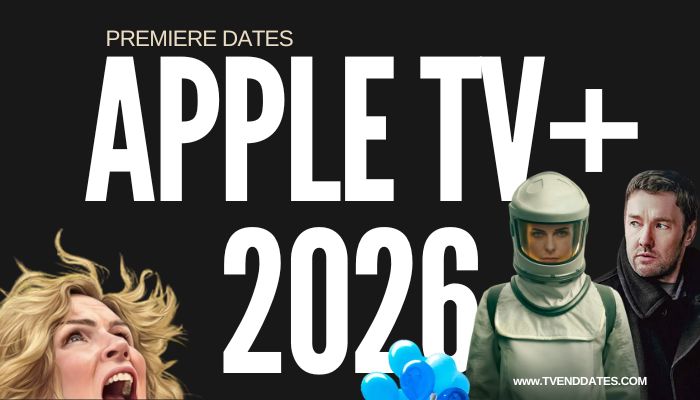
Debris Season 1 Cancelled or Renewed? Latest Status:
About Debris
When wreckage from a destroyed alien spacecraft scatters across the Western Hemisphere, it soon becomes apparent the pieces are messing with the laws of physics, changing lives in ways we can’t comprehend. Two agents from different continents, and different mindsets, are tasked to work together to recover the debris, whose mysteries humankind is not quite ready for.
Why NBC’s Debris Season 2 Was Cancelled
When Debris premiered on NBC in March 2021, it arrived with the kind of promise that excites science-fiction fans and network executives alike: a high-concept mystery, a cross-continental partnership between two sharply drawn agents, and the pedigree of Fringe creator J.H. Wyman behind it. The setup was irresistible, the wreckage of an alien spacecraft scattered across Earth, each fragment capable of altering physics, consciousness, and human behavior. Every week, Agents Bryan Beneventi (Jonathan Tucker) and Finola Jones (Riann Steele) confronted a new anomaly while trying to unravel the overarching conspiracy surrounding the debris.
Yet despite solid performances, cinematic visual effects, a compelling premise and untapped future potential, Debris lasted only 13 episodes. NBC cancelled the series only days after its Season 1 finale aired on May 24, 2021, leaving viewers wondering why a show with so much potential failed to secure a Season 2.
The answer lies in a combination of ratings decline, structural storytelling issues, network history, and genre fatigue; a familiar cocktail for ambitious sci-fi dramas on broadcast television.
A Promising Start That Never Found Its Audience
NBC initially had high hopes for Debris. The network marketed it as a procedural-mystery hybrid, a formula traditionally reliable for broadcast TV — while also positioning it as the spiritual successor to Fringe. Early buzz was strong, especially with Tucker and Steele providing the emotional grounding that genre series often struggle to achieve.
However, ratings told a different story.
- Live+7 viewership averaged just under 5 million per episode
- The adults 18–49 rating landed at only 0.7, already low for a show in its freshman year
- The final episodes sank to a 0.38 rating and around 2.8 million viewers
Even by pandemic-era standards, those numbers were soft. NBC tends to gauge the long-term viability of new dramas based on early retention, and Debris’ viewership curve went in one direction: downward. The show never found mainstream traction or the passionate niche following necessary for a ratings rebound.
For a broadcast network investing in expensive visual effects and location-heavy episodes, the equation simply didn’t add up.
A High-Concept Mystery Without a Story Engine
While Debris suffered from declining ratings, the deeper issue was structural: it struggled to give the less than stoic viewers a reason to stay.
In television terminology, a story engine is the central narrative mechanism that explains why the characters exist in this world, what drives them week after week, and what emotional longing or conflict keeps audiences invested. Procedurals thrive on simple engines (“solve the case/case-of-the-week”). Serial dramas thrive on character arcs, emotional stakes, and payoff.
To its credit, Debris tried to do both, but in the process, weakened both sides.
Each episode introduced a strange, sometimes emotionally resonant anomaly caused by a piece of alien wreckage. But these stories often felt disconnected from one another, and more importantly, disconnected from the characters themselves. After 13 episodes, Finola and Bryan remained largely defined by their roles rather than by internal desires, fears, or deeper motivations.
The debris itself, the literal mystery box, became the focal point, overshadowing character development. Without a firm emotional spine, audiences drifted. A mystery that expands without delivering answers can create intrigue, but when stretched too thin, it creates fatigue. Viewers couldn’t tell what Debris wanted to be, and the show never clarified it.
This lack of a consistent story engine is one of the key reasons Debris season 2 never materialized, which isn’t to say there wasn’t enough potential for more, just that key levers weren’t pulled.
The Collision of Procedural Structure and Mystery-Box Storytelling
Debris found itself caught between two television philosophies that rarely work well together, particularly on broadcast TV.
1. The Procedural Model
This tradition, followed by The X-Files, Fringe, and dozens of network hits, gives viewers a clear rhythm: a case of the week with emotional or thematic parallels to the characters’ lives. Successful procedurals don’t rely on heavy mythology; they build relationships and tension through repetition and variation.
2. The Mystery Box
Popularized by J.J. Abrams, this model thrives on layers of unanswered questions, ever-escalating stakes, and seismic reveals – think LOST or eventual Fringe. Such shows can sustain this approach, but only when the characters’ emotional lives are rich enough to carry the uncertainty.
Debris attempted to fuse the two in its own particular way, but the concepts clashed. Each episode introduced new anomalies without resolving old ones. Procedural viewers didn’t get satisfying closure; mythology-focused viewers didn’t get consistent forward momentum. Over time, the show accumulated questions without delivering meaning.
This tension is part of why critics and fans noted the series “never found its footing,” despite its imaginative premise.
NBC’s Long History of Quickly Cancelling Sci-Fi
NBC has always been willing to take risks on sci-fi, but it also has a well-documented pattern of pulling the plug early. Awake, Revolution, The Event, Emerald City, and Manifest all faced early cancellations or dramatic uncertainties. In many cases, the same issues appeared: ambitious concepts, inconsistent ratings, and structural mismatches between serialized storytelling and broadcast expectations.
Debris became another entry in that cancellation lineage.
High-concept sci-fi is notoriously expensive. NBC needed strong ratings to justify the cost of weekly VFX and location shoots, and when those numbers didn’t materialize, the network defaulted to its pattern: cut quick, cut clean.
While NBC later saved Manifest thanks to massive streaming popularity, Debris never reached that level of post-cancellation momentum.
Could Debris Season 2 Happen Somewhere Else?
In theory, cancelled broadcast sci-fi shows sometimes find new life on streaming platforms (Lucifer on Netflix, The Expanse on Amazon Prime Video, Manifest on Netflix). But Debris didn’t fit the profile that typically fuels a revival.
Why Season 2 was unlikely anywhere:
- The fanbase was too small to justify an expensive pickup
- Visual effects costs were high for streaming budgets
- The series lacked a strong binge-driven hook
- Its narrative foundation was not yet deeply rooted or culturally visible
- No major platform expressed interest after cancellation
- The TV universe is never in short supply of new high-concepts shows coming through the pipeline
- All considered, it was an ‘easy’ decision for NBC to cut its losses.
NBC’s decision essentially signaled the end of the road. Even though the finale set up a larger interstellar storyline and future discovery arcs, the show hadn’t built enough traction to inspire a second chance.
If the franchise ever returns, it would most likely be a reboot, not a revival, with the core idea (explicitly expressed or otherwise) reimagined rather than continued.
Why the Cancellation Wasn’t Entirely a Bad Thing
Although disappointing for fans, the cancellation of Debris may ultimately be constructive within the sci-fi landscape. The show’s collapse reinforces a message that modern genre storytellers increasingly recognize:
Audiences don’t stay for concepts, they stay for characters.
Without a grounded emotional framework:
- The mystery becomes noise
- The clues feel arbitrary
- The weekly anomalies lose impact
- And the stakes remain abstract
Many sci-fi dramas have failed for the same reason, but each failure helps shape the evolution of the genre. The next show that attempts a blend of procedural storytelling and mystery-box mythology may be stronger for understanding where Debris faltered.
Meanwhile, the show’s cast and creators have already moved on to new projects, carrying the lessons, and the strengths, of Debris with them.
The Legacy of Debris Years Later
Despite its brief run, Debris leaves behind a small but appreciative footprint in the sci-fi community. It showcased:
- Jonathan Tucker and Riann Steele’s compelling chemistry
- Inventive concepts for how alien technology could emotionally affect humans
- A thoughtful, grounded tone in a landscape of often bombastic sci-fi
- A willingness to push network television VFX standards
In many ways, the show was a victim of ambition. Its world was vast, its mysteries deep, and its budget demands significant. A longer development period or a streaming environment may have given it more space to grow.
Still, Debris remains a fascinating what-if, a glimpse at a series with big ideas and unfulfilled potential.
Conclusion: Why Debris Was Cancelled and Why Season 2 Won’t Happen
Ultimately, Debris cancellation boils down to a convergence of challenges: declining ratings, an underdeveloped narrative engine, and the difficulty of sustaining mystery-box storytelling on a network schedule. NBC’s historical impatience with sci-fi didn’t help, nor did the show’s struggle to articulate why viewers should invest long-term in its characters and secrets.
Season 2 won’t happen, but the series’ legacy isn’t lost. Debris stands as a reminder that depth, character motivation, and emotional clarity matter just as much as high-concept ideas, and that even the most intriguing mystery needs a human heartbeat at its center.
As viewers and creators look back, the show offers a valuable lesson for the next generation of sci-fi dramas: big questions are compelling, but meaningful answers are what keep audiences coming back.
Recommended TV Premiere Dates Calendars




















